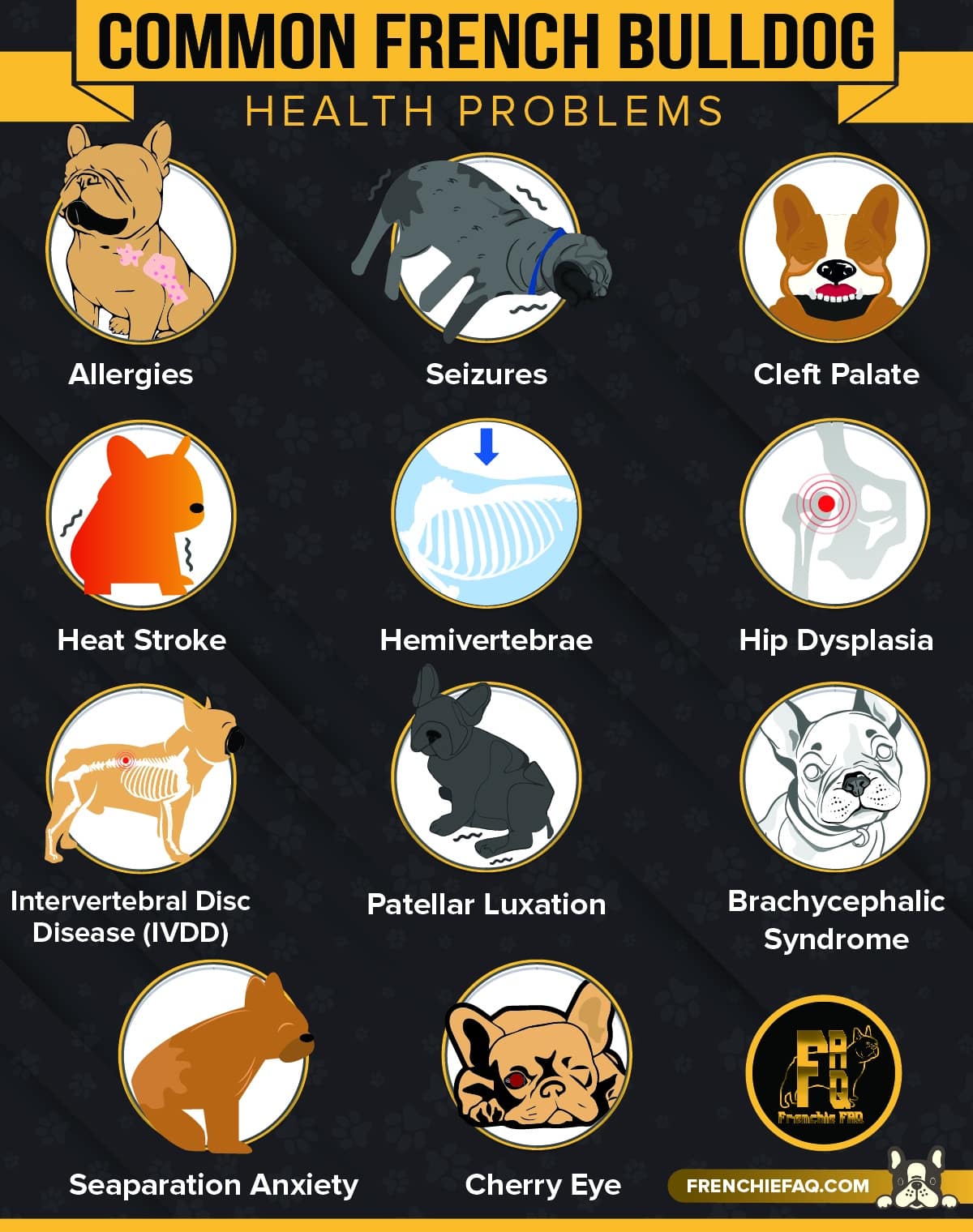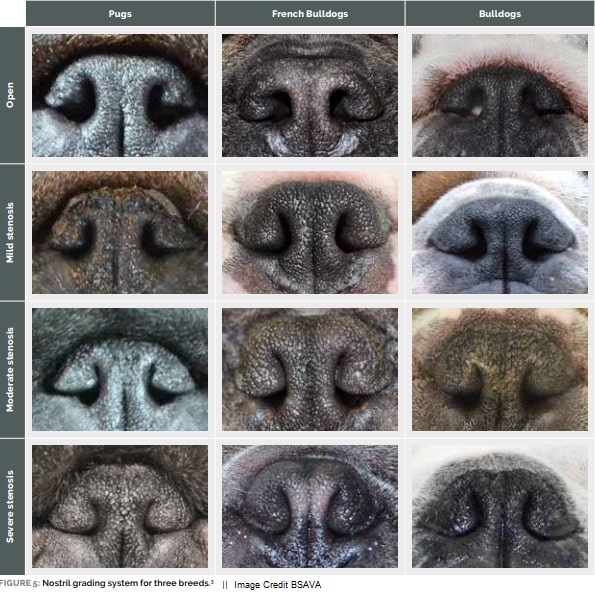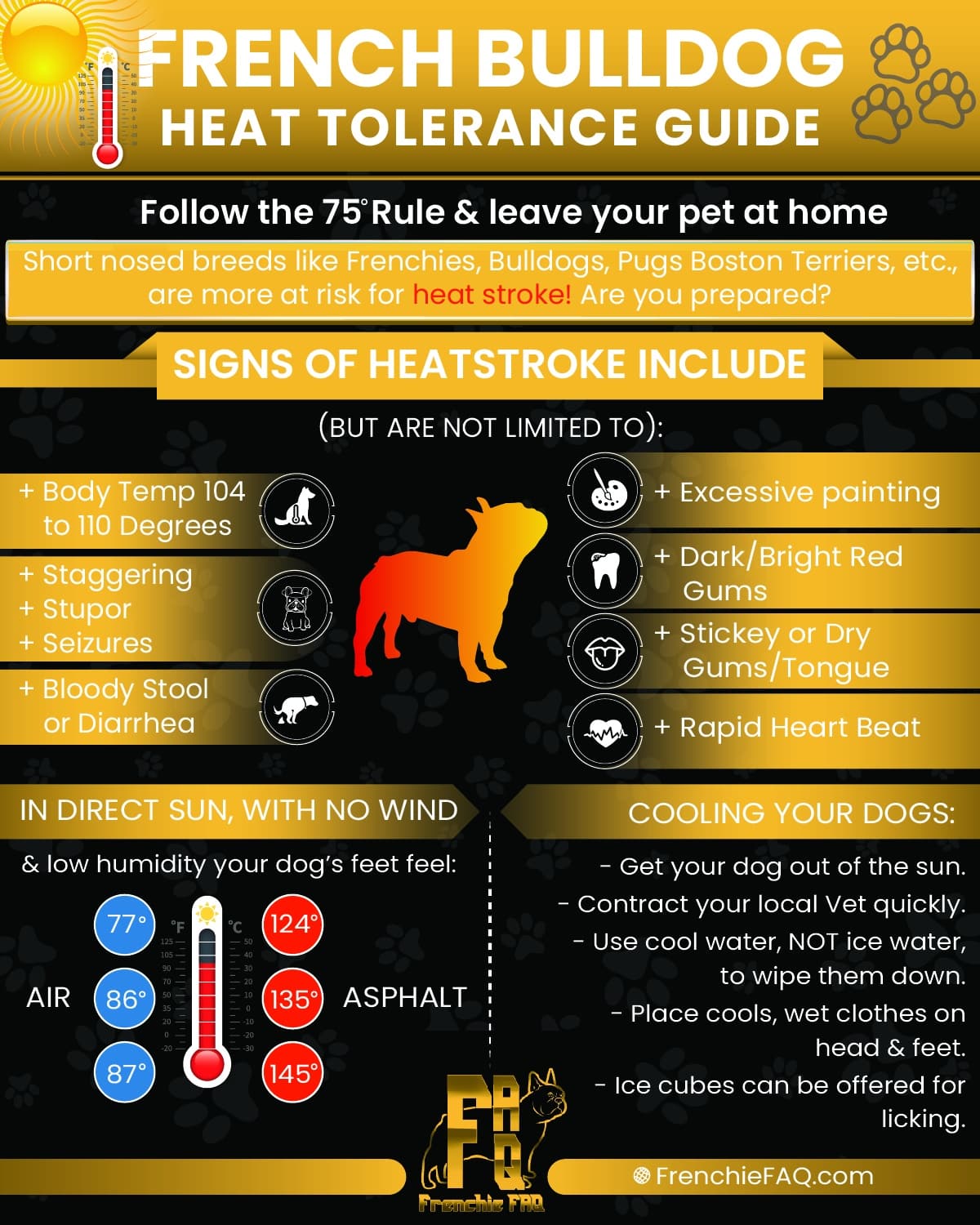
French Bulldogs, with their bat-like ears and endearing expressions, have captured the hearts of many and steadily risen in popularity as a favored breed. However, beneath their charming demeanor lies a susceptibility to a range of health issues. Due to their unique physique and genetic makeup, French Bulldogs often grapple with specific ailments that potential owners and enthusiasts should be aware of. In this blog, we will delve into 11 common health issues that these adorable canines face, equipping readers with the knowledge to ensure their furry companions lead a healthy and happy life. Whether you’re a proud owner or considering bringing one of these delightful dogs into your home, understanding their health challenges is paramount.
11 Common Health Issues
1.) Hip Dysplasia
Hip Dysplasia is a common genetic Frenchie issue that you must know before you purchase a French Bulldog.
Hip dysplasias are a group of disorders that cause abnormal bone growth in French Bulldogs’ hips. While the bones may not be visibly deformed, the Frenchie’s hips are likely to be painful and will become less stable as they age.
To understand hip dysplasia and what it means for your french bulldog, you need to understand the anatomy of the hip joint. Hip joints are ball-and-socket joints that allow hips to rotate, which is how dogs move. The cartilage at the end of each bone in your dog’s leg connects with another bone known as the socket. This connection allows for movement and helps keep the bones in place, so they don’t rub against each other and cause damage over time.
The condition is often inherited and occurs when there is an abnormal growth in the hip region rather than normal development.
Symptoms can include:
– Unsteady gait, which can result in lameness or injury due to falls
– Reduced activity levels due to pain or lameness
– Difficulty climbing stairs or other structures
– Weight loss due to discomfort from pain or lameness.
There are many causes for hip dysplasia, including genetics and environmental factors such as diet and exercise.
While there is no cure, specific treatments can help relieve symptoms by correcting bone growth issues with surgery.
You can try changing your pet’s diet with a vet’s help or take supplements that help relieve joint pain.
2.) Allergies
Frenchies can develop health issues at any age, but their genetics are the main culprit behind causing allergies. French bulldog allergies are mainly an immune system reaction to any allergen.
Environmental allergens and certain foods can cause allergies in French Bulldogs. Common signs of allergies in French Bulldogs include itching, redness, inflammation of the skin, excessive scratching, head shaking, and hair loss.
Treating allergies in French Bulldogs can be challenging, as the underlying cause can vary greatly.
In some cases, the reason may be environmental, such as pollen exposure, or food-related, such as a reaction to certain ingredients.
Allergy testing can help identify an allergy’s cause and provide the best treatment plan. Once the cause of the allergy is specified, the best treatment plan will depend on the individual case. Some medications, such as antihistamines and steroids, may reduce the symptoms.
Additionally, steps can be taken to reduce exposure to the allergen, such as avoiding certain foods or areas. It is essential to seek veterinary care if you suspect your French Bulldog suffers from allergies.
What to do when your Frenchie gets an allergy? First, change your Frenchie’s diet.
Try probiotics to help reduce inflammation in the body. Then give them an antihistamine to reduce itching and inflammation even further!
You may also use a natural remedy like lavender oil or essential oils (lavender, rosemary) on your French Bulldog’s skin once a week to help soothe the itching and reduce inflammation.
Once the cause of the allergy is identified, the best treatment plan will depend on the individual case. Some medications, such as antihistamines and steroids, may reduce the symptoms. Additionally, steps can be taken to minimize exposure to the allergen, such as avoiding certain foods or areas. It is essential to seek veterinary care if you suspect your French Bulldog suffers from allergies.
3.) Conjunctivitis
French Bulldogs are susceptible to conjunctivitis, commonly known as pink eye.
It is caused by bacteria, fungi, or viruses and is often very uncomfortable for the affected Frenchie. If left untreated, conjunctivitis can lead to serious eye problems such as glaucoma and blindness.
The most common symptom of conjunctivitis in French Bulldogs is redness and irritation of the eye. The eye may also be producing a thick, sticky discharge.
Other symptoms include itching, excessive blinking, and squinting. In severe cases, the French Bulldog may have difficulty opening its eye.
There are several ways to treat conjunctivitis in French Bulldogs.
The first step is to know the root cause of the infection. If bacteria cause the infection, antibiotics may be prescribed. Antifungal or antiviral medications may be prescribed if a virus or fungus causes the infection. In addition, your veterinarian may suggest using eye drops or ointment to reduce inflammation and discomfort.
Ensure their eyes are regularly cleaned and examined to prevent conjunctivitis in French Bulldogs. If your Frenchie is experiencing any symptoms of conjunctivitis, get in touch with your vet ASAP!
4.) Cherry Eye
Did you know? Dogs have a third eyelid. The third eyelid is a membrane in the corner of each eye and is usually barely visible.
You guessed it right. It is the same pink eyelid that covers your dog’s eye while they are sleeping.
Cherry eye is a condition caused by the prolapse of the third eyelid. When the tear gland on the third eyelid becomes enlarged, it can cause the eyelid to protrude and become visible. This is what is known as the cherry eye.
In addition to being visually noticeable, cherry eyes can cause various symptoms. These include redness and swelling of the affected area, discharge from the eye, and increased tears. The condition can also lead to more severe problems such as irritation, infection, and even vision loss.
Treatment for cherry eye is usually straightforward, although surgery may sometimes be required.
In most cases, the condition can be treated in the veterinarian’s office using a combination of medications and eye drops. These medications can reduce inflammation and help to reduce the size of the tear gland. In some cases, surgery may also be necessary to remove the affected gland and prevent further prolapse.
5.) Tracheal Collapse
This condition is caused by the trachea, or windpipe, losing its structural integrity, leading to various symptoms and health complications.
Tracheal collapse is usually caused by genetics, environment, and lifestyle. Some French Bulldogs are born with a trachea that is too weak to maintain the necessary structural strength.
This can be compounded by the lifestyle of the dog, such as too much weight, too much exposure to smoke or other irritants, or too much exercise.
As a result of these factors, the trachea can weaken and collapse, causing difficulty breathing and other serious health problems. Symptoms of tracheal collapse can range from a persistent cough to gagging or noisy breathing to a complete obstruction of the airways.
In a severe case, pneumonia or death can result if the condition is left untreated. In a severe case, pneumonia or death can result if the condition is left untreated.
The good news is that some cases of tracheal collapse can often be treated with medications, lifestyle modifications, and even surgery.
6.) Stenotic Nares
French Bulldogs can also suffer from a condition known as Stenotic Nares.
This condition is caused by the narrowing of the nostrils and can lead to difficulty breathing, snoring, and even fainting.
Stenotic Nares is a serious medical issue that can cause various health problems for French Bulldogs, such as respiratory distress, sleep apnea, and even heart failure.
The most common cause of Stenotic Nares is an inherited trait in French Bulldogs. These dogs are bred with short muzzles and flat faces, which can make their airways narrow and constricted. This can cause their nostrils to become obstructed and reduce the air they can take in.
In addition, the narrow airways can cause the air taken in to be very dry, leading to irritation and inflammation of the nose and throat. The most common symptom of Stenotic Nares Disease is difficulty breathing.
French Bulldogs may breathe heavily, snore loudly, or even faint due to a lack of oxygen. They may also display signs of distress, such as painting, whining, or shaking. It is important to note that surgery does not cure Stenotic Nares disease. The condition can worsen if left untreated, leading to more severe health issues. Therefore, it is important to seek medical attention for your French Bulldog as soon as possible.

7.) Brachycephalic Airway Syndrome (BAS)
Brachycephalic Airway Syndrome (BAS) is a broad term used to describe various airway abnormalities common in brachycephalic (short-nosed) breeds, such as French Bulldogs, Pugs, and Boston Terriers.
It is caused by the abnormal structure of their head and face, which can lead to breathing difficulty and other respiratory problems.
The most common symptoms of BAS include snoring, snorting, and loud breathing. These signs can range from mild to severe, leading to difficulty exercising and sleeping. In more extreme cases, these signs can indicate a life-threatening condition, such as an upper-airway obstruction.
BAS can be caused by various issues, such as a narrow nostril opening, elongated soft palate, and everted laryngeal saccules.
These issues can lead to excessive accumulation of mucus in the upper airway, which can interfere with normal breathing. Additionally, the soft tissue of the upper airway can become swollen and inflamed, leading to further difficulty breathing.
Treatment for BAS typically focuses on relieving the obstruction of the airway, which can be done through surgery, medications, and lifestyle changes.
8.) Deafness
Deafness in French Bulldogs is a condition that affects the dog’s hearing. This can range from mild to severe.
It is essential to understand why deafness occurs in French Bulldogs so you can take steps to prevent it.
The most common cause of deafness in these dogs is genetics. French Bulldogs are more likely to be born deaf if they have a family history of deafness. This is because they have a genetic predisposition to the condition.
Other causes of deafness in these dogs include exposure to loud noises, certain medications, and certain illnesses.
The signs of deafness in French Bulldogs can vary, but the most common symptom is the lack of response to sound. If your Frenchie does not respond to sounds or commands, it could be a sign of deafness.
Other signs include not responding to their name, not responding to a doorbell, not responding to other dogs, or not responding to loud noises. If you suspect your French Bulldog is deaf, take them to the vet for a proper diagnosis.
9.) Laryngeal Collapse
It occurs when the airway collapses, making it difficult for the dog to breathe. A genetic predisposition causes laryngeal collapse to the condition, but environmental factors can also contribute.
These include trauma to the neck and head, such as from a collar or a foreign object lodged in the throat. It can also be caused by long-term exposure to allergens or air pollution.
In addition to honking coughs, gagging, difficulty breathing, and blue gums and skin, laryngeal collapse is characterized by a honking cough.
If left untreated, laryngeal collapse can lead to respiratory failure and death. Treatment for laryngeal collapse usually involves surgery to widen the airway, but in some cases, medication or lifestyle changes may be recommended. Surgery can be risky and expensive, so discussing the risks with your vet is essential.
To help prevent laryngeal collapse in French Bulldogs, keeping a close eye on their breathing pattern is essential. The changes in breathing patterns can range from soft snoring to harsh, raspy sounds, and a keen eye on these signs can help the Frenchie parent get their pet treated at the earliest stage.
10.) Distichiasis
Distichiasis is an eye condition caused by an abnormal growth of eyelashes.
French Bulldogs often suffer from this condition, which is very uncomfortable for them. The extra eyelashes cause irritation, redness, and discharge and can lead to infection if not paid attention to.
In French Bulldogs, the condition is caused by a gene mutation, which causes the growth of extra eyelashes from the inner corner of the eye.
This mutation is present in most French Bulldogs, although it is more common in some lines more than others. The extra eyelashes can scratch the eye’s surface, leading to inflammation and irritation.
This can cause discomfort and lead to more severe complications such as conjunctivitis, corneal ulcers, and dry eye. Without treatment, these conditions can result in vision loss or even blindness. Treatment for French Bulldogs Distichiasis involves removing the extra eyelashes. This is done surgically, under general anesthesia.
A small incision is made near the inner corner of the eye, and the extra eyelashes are gently removed. The procedure is relatively straightforward and only takes a few minutes.
After the procedure, the eye must be monitored closely for any signs of infection.
11.) Heat Strokes
Heat stroke is a severe condition that can cause permanent damage or even death if not treated promptly and adequately.
French Bulldogs are prone to heat stroke due to their short snouts and their inability to regulate their heat. This means they cannot cool down as quickly as other breeds of dogs. Some signs and symptoms of heat stroke in French Bulldogs include excessive panting, drooling, lethargy, disorientation, vomiting, and seizures.
If you notice these symptoms, you must take your French Bulldog to the vet immediately.
11 Signs of a French Bulldog Heat Stroke
- Excessive panting that gets worse
- Dizziness
- Excessive drooling
- Fever
- Glazed eyes
- Lack of coordination & lethargy
- Loss of consciousness
- Rapid heart rate
- Bright red or pale gums
- Mental confusion
- Collapsing
The best way to prevent heat stroke in French Bulldogs is to ensure they are kept in a cool and comfortable environment. If it is hot outside, limit their time outdoors and ensure they have access to plenty of fresh water. Additionally, it is important to ensure that your French Bulldog has plenty of shade to rest in and a cool area to retreat to if they become too hot.

Conclusion on Common French Bulldog Health Issues:
French Bulldogs are special. They are the kind of dog that makes you smile every time you look at them—and they deserve to be treated with the utmost care. We hope you understand what diseases you can potentially expect your Frenchie to inherit or develop in their life span with this list of common French bulldog health issues. Also, there are health testing services that can give you a clue on all of the predisposed genetic issues your Frenchie could experience.
Still willing to adopt or buy a French Bulldog?